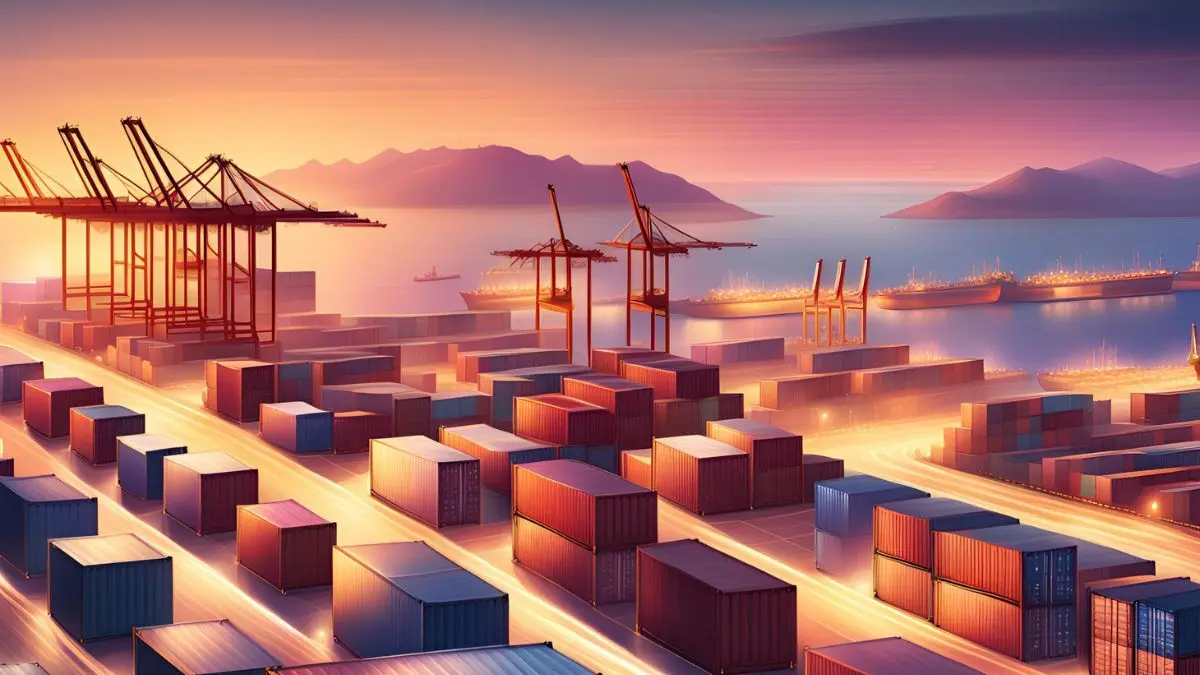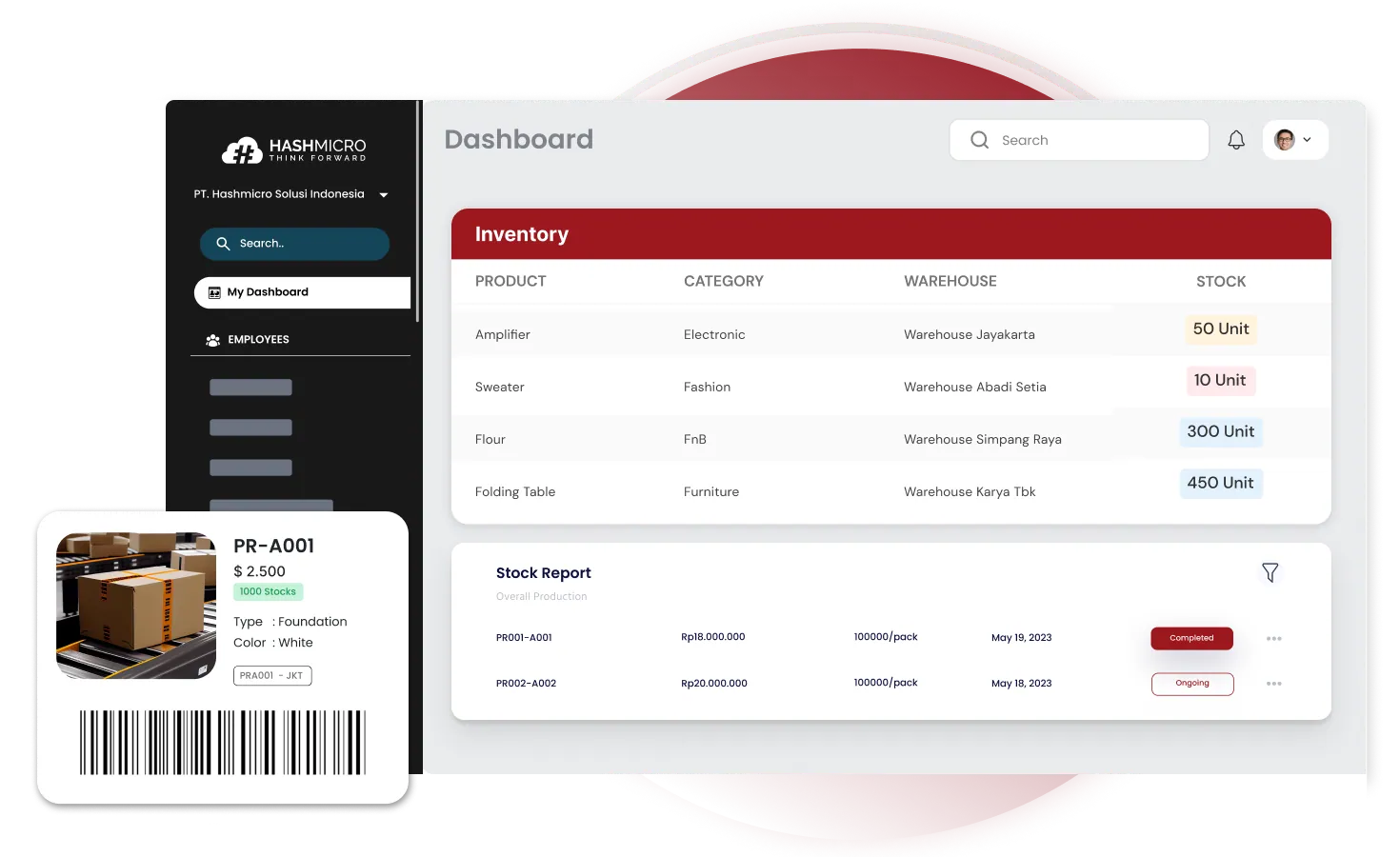Are you aware of the hidden opportunities in Singapore’s Free Trade Zone (FTZ)? Navigating the regulations and mechanics of FTZ could lead to lower costs, smoother trade, and a streamlined supply chain for your business.
FTZs offer advantages like tax exemptions, simplified customs procedures, and enhanced logistics. They are specially designed zones to promote global trade, benefiting businesses and the country’s economy.
This article will explore Singapore’s FTZ regulations, the benefits of operating within an FTZ, and how HashMicro’s software can help streamline FTZ warehouse operations to improve your business performance.
Key Takeaways
|

What You Need to Know About FTZ (Free Trade Zone)
A Free Trade Zone (FTZ) is a designated area where goods can be stored, processed, or re-exported without the intervention of local customs duties or taxes. This reduces the cost of doing business in global trade.
FTZs offer businesses a unique environment to facilitate trade by providing exemptions from tariffs and other trade barriers. They are vital for enhancing competitiveness in the global market.
Singapore’s FTZ, regulated by Singapore statutes, is one of Asia’s most well-regulated and strategically located. The country’s FTZs provide a robust infrastructure for warehouse distribution, ensuring smoother logistics for international companies.
Also read: What is WMS and How it differs from Supply Chain
Why FTZs Are Crucial for Modern Trade?
FTZs are critical in the global marketplace, enabling businesses to adapt to changing trade dynamics. They play a key role in reducing operational costs, which is vital for modern trade practices.
They provide a strategic advantage by offering flexibility in supply chain management, including storage, processing, and re-exportation of goods. FTZs have become an essential component of a competitive strategy for companies dealing with international goods movement.
Moreover, FTZs in Singapore offer a highly favourable location for conducting trade with Asia and the rest of the world. Businesses can leverage the country’s logistical advantages and proximity to key international markets.
Who Should Pay Attention to FTZ?

Businesses involved in global trade should pay close attention to FTZs. The lack of tariffs and customs duties can drastically lower overhead costs, making it ideal for importers, exporters, and distributors.
Manufacturers looking to optimize their supply chain will benefit significantly from using an FTZ. Storing raw materials or finished products in FTZ warehouses can streamline production cycles and reduce storage costs.
Additionally, logistics companies can take advantage of FTZs to enhance warehouse operations. With simplified clearance and greater storage flexibility, these companies can improve efficiency in warehouse distribution and other logistics processes.
Implementing the best WMS systems makes warehouse management smoother and more organized, which is essential for operating a warehouse in Singapore.
The Benefits of FTZ for Your Business
FTZs offer a variety of benefits that can significantly boost business operations. Here’s how they help:
- Cost Savings: FTZs help businesses save on taxes and import duties. This can lead to significant cost reductions, especially for companies that import or export goods regularly.
- Increased Flexibility: FTZs allow businesses to store goods for extended periods without incurring duties, allowing them to quickly adapt to changing market conditions.
- Faster Customs Clearance: Simplified customs procedures within FTZs result in faster processing times, making it easier for businesses to move their goods quickly into and out of the market.
- Improved Cash Flow: Businesses can maintain better cash flow by delaying customs duties. This gives them more capital to invest in other areas of their operations.
- Competitive Edge: Operating within an FTZ helps companies maintain a competitive advantage in global trade. Lower operational costs, faster processing, and reduced customs delays improve market positioning.
- Better Supply Chain Efficiency: FTZs streamline warehouse management by eliminating red tape. This leads to more efficient operations, ultimately improving overall supply chain performance. Using smart warehouse technologies can significantly optimize this process.
The Mechanics of How FTZ Works
FTZs are not just about lower costs; they allow businesses to streamline operations and reduce trade risks. Here’s a look at how they operate.
1. Customs clearance
Once goods enter an FTZ, they are not subjected to customs duties unless they leave the zone for local consumption. This flexibility enables companies to plan operations without the constraint of immediate taxes.
2. Value-added services
In FTZs, businesses can perform services like repackaging or labeling without paying taxes. This adds value to the products before they are re-exported, improving warehouse management and increasing profitability.
3. Long-term storage
Goods in an FTZ can be stored indefinitely without import duties. This allows businesses to hold stock in Singapore, maintaining an efficient supply chain without facing increased costs over time.
4. Re-export flexibility
FTZs make it easier for businesses to re-export goods without incurring duties. This feature makes FTZs ideal for international trading and warehouse distribution businesses.
A Guide to Singapore’s FTZ Regulations

Singapore has clear and comprehensive FTZ regulations designed to attract businesses involved in international trade. The regulations focus on efficiency and compliance with global standards.
1. Customs procedures
FTZs in Singapore simplify customs procedures by eliminating import duties and taxing goods entering the zone. This encourages international trading, as businesses can store goods without the immediate cost burden.
2. Goods handling and processing
Goods in an FTZ can be stored, repackaged, or processed without incurring taxes. This means businesses can add value to their products before re-exporting them, enhancing their supply chain management (SCM) capabilities.
3. Export and re-export
Singapore’s FTZs make it easier to re-export goods internationally, reducing trade delays. This flexibility supports warehouse operations and distribution businesses, promoting faster turnover.
4. Regulatory compliance
Singapore statutes ensure FTZ operations follow strict guidelines to maintain legal compliance. Businesses must submit regular documentation, ensuring transparency in their supply chain management activities.
Streamlining FTZ Warehouse Operations with HashMicro Software
 Managing an FTZ warehouse requires robust software solutions to handle the intricacies of inventory management, customs procedures, and logistics. HashMicro Warehouse Management System provides an integrated solution that seamlessly supports these functions.
Managing an FTZ warehouse requires robust software solutions to handle the intricacies of inventory management, customs procedures, and logistics. HashMicro Warehouse Management System provides an integrated solution that seamlessly supports these functions.
With real-time inventory tracking, automated reporting, and advanced warehouse management systems (WMS), HashMicro helps businesses manage their FTZ operations. These features simplify compliance with regulations and streamline processes, helping businesses thrive in an FTZ environment.
Features:
- RFID Warehouse Rack Stock In-Out Automation: Enhances accuracy and efficiency by automating stock tracking with RFID technology.
- 3D Warehouse: Provides a visual layout and inventory status, aiding space optimization and strategic planning.
- OCR for Receiving: Speeds up receiving processes by automatically converting physical documents to digital data.
- Stock Forecasting: Analyzes demand to reduce overstock and stockouts, improving inventory management and customer satisfaction.
- Run Rate Reordering Rules: Ensures efficient stock management by setting replenishment rules based on actual demand.
- Quality Control Management: Guarantees products meet quality standards, enhancing customer satisfaction and reducing defects.
- Pick, Pack, Delivery (3-Step Route Warehousing) Streamlines picking, packing, and delivering goods for faster operations.
Conclusion
FTZs offer significant advantages to businesses, from reducing operational costs to enhancing supply chain management. By taking advantage of FTZ warehouses, companies can enjoy streamlined operations and improved cash flow, vital for global trade.
HashMicro software simplifies the complexity of FTZ warehouse management, offering features like real-time inventory tracking, streamlined customs processes, and efficient warehouse distribution. These solutions ensure smooth operations in a free trade zone environment.
To optimize your FTZ operations, try HashMicro’s free demo today and discover how it can help streamline your business processes.

FAQ
-
What is a Free Trade Zone (FTZ)?
An FTZ is a designated area where goods can be stored, processed, or re-exported without customs duties or taxes, reducing costs and facilitating global trade.
-
How do FTZs benefit businesses?
FTZs offer cost savings by eliminating tariffs, faster customs clearance, and greater flexibility in supply chain management, improving operational efficiency and global competitiveness.
-
How do FTZs work in Singapore?
Singapore’s FTZs simplify customs procedures, allow value-added services like repackaging, and provide long-term storage options, enhancing international trade efficiency.













